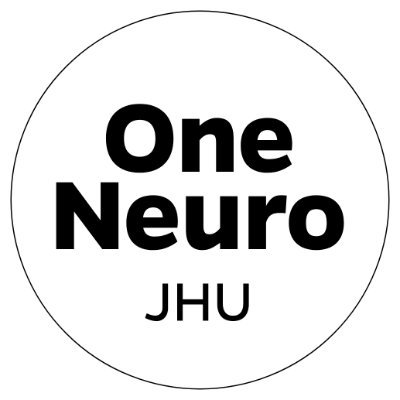
Ingie Hong
@Ih_current
Followers
380
Following
249
Media
47
Statuses
212
brain scientist and tool developer at Johns Hopkins.
Balitmore, Maryland
Joined June 2010
Now published in PNAS! Congrats to my amazing colleagues Julia and Blaise & postdoctoral mentor Rick! https://t.co/Vqgd0tfWbw Here we've dissociated enzymatic vs structural roles of SYNGAP1 in excitability and seizures. This will inform treatment development for this NDD!
pnas.org
SYNGAP1 is a key Ras-GAP protein enriched at excitatory synapses, with mutations causing intellectual disability and epilepsy in humans. Recent stu...
0
0
1
Congrats to my dear colleagues Julia Brill, Blaise Clarke, and Rick Huganir! And thanks to the many people who helped with this research. Lastly, thanks to @cureSYNGAP1 and all Syngapian families who inspired our science.
1
0
0
Seizures and epilepsy are serious symptoms of #SYNGAP1 syndrome, which arises from LoF mutations in the gene. Our finding has important implications in the treatment of this condition because it shows that the structural role of SYNGAP1 will need to be rescued by therapies.
1
0
0
This unexpected structural role was discovered when @yoichi_araki made GAP-deficient* mutant Syngap1 mice & explored LLPS with other molecules. GAP-regulation of intrinsic excitability builds on earlier findings by @GavinRumbaugh & establishes SYNGAP1 as a bifunctional molecule.
1
0
0
Excited to share our new preprint on #SYNGAP1 that shows how its enzymatic and structural role can be dissociated! The GAP activity is essential in increasing intrinsic excitability but does not contribute to the seizure protection SynGAP is important for. https://t.co/GtXg71P8oW
1
2
23
We're thrilled to present ESM3 in @ScienceMagazine. ESM3 is a generative language model that reasons over the three fundamental properties of proteins: sequence, structure, and function. Today we're making ESM3 available free to researchers worldwide via the public beta of an API
24
250
865
Our paper on MouseGoggles - an open-source mini VR headset for mice - just came out! Really excited about finally integrating eye-tracking into the headset. Nice working with you @hongyu_chang! https://t.co/ok9iR01pnl
https://t.co/zicNX2JEed
0
33
117
Amazing work by @Han_L_Tan! These BNC2 neurons shut down hunger before you can pronounce semaglut-. Lots of implications for understanding and treating obesity 🧠🍽️ #Neuroscience #ObesityResearch #Leptin
Thrilled to share our paper online @Nature (on my birthday)! We've identified a new population of LepR neurons (BNC2) in the hypothalamus ARC that acutely suppresses appetite by directly inhibiting AGRP neurons, decoding the missing LepR GABAergic neurons.
0
0
6
Brain Molecule Makes Neurons Less Selective Deepening Understanding of Human Cognition—Findings from Johns Hopkins Medicine may help scientists better understand causes of autism, schizophrenia and epilepsy. “We've discovered that the calcium permeable subtype of AMPA receptors
1
1
8
Lastly a shoutout to the amazing undergrad interns @jojo_zn_yang david.cheon @MichaelAyad10 johnson.moran who made jaw-dropping images like this that inspire us to explore more about forebrain architecture and circuit logic. Miss you guys!
0
0
8
Several tools we developed along the way, including large-capacity #AAV vectors including AAV-GluA2 shown below (at @Addgene soon), updated #retinotopy, and #FICSRseq which recovers PV interneurons and other cells vulnerable to dissociation! Kudos to @ThomasDWKim @SethBlackshaw
1
1
14
Computational modeling with the irresistible @JoramKeijser and @sprekeler narrowed down the potential methods that could contribute to this surprising role in selectivity. Intriguing predictions abound!
1
0
4
Remarkably, hippocampal PV neurons, which usually exhibit low spatial tuning, became more spatially selective after removing CP-AMPARs, indicating that CP-AMPARs suppress the feature selectivity of neurons beyond vision. @thainmueller and @bartos_marlene don't mess around.
1
3
14
Interestingly, excitatory-PV interneuron connectivity rates and unitary synaptic strength were unaltered by CP-AMPAR removal, suggesting that the selectivity of PV interneurons can be altered without drastically changing connectivity. Kudos to Juhyun Kim and @brownlaboratory!
1
2
6
Replacing CP-AMPARs in PV interneurons with calcium-impermeable AMPARs increased their orientation selectivity in the visual cortex. These experiments were inspired by @Agarwalneurolab over a beer years ago #happyhour
1
1
13
Many mammalian species express little NMDARs but abundant CP-AMPARs in PV neurons, suggesting this alternative dendritic Ca2+ source is important in their circuit role. Thanks @spark_neuro @fennamk @s_mccarroll @AllenInstitute for enabling cross-species studies!
2
3
10
Why are some neurons more selective than others? We report now in @Nature how calcium permeable-AMPA receptors in PV neurons make them less selective to sensory features https://t.co/Y7sXbtE8I3 Long live the geniuses behind this🧠🔍 https://t.co/87BqmXxYje
@thainmueller @rhuganir
17
84
340
We’re presenting AlphaProteo: an AI system for designing novel proteins that bind more successfully to target molecules. 🧬 It could help scientists better understand how biological systems function, save time in research, advance drug design and more. 🧵 https://t.co/lx35RvplFr
68
805
3K
Make critical thinking a foundational subject in education. Teach students how to think critically, analyze information, and discern fact from fiction using scientific methods, creating a more discerning and informed society.
75
828
3K
Presenting KINACT, a new kinase activity integrator out now in Nature Communications, led by @WeiLin1113! Check it out at https://t.co/3WXmuUXKKZ
0
9
73








